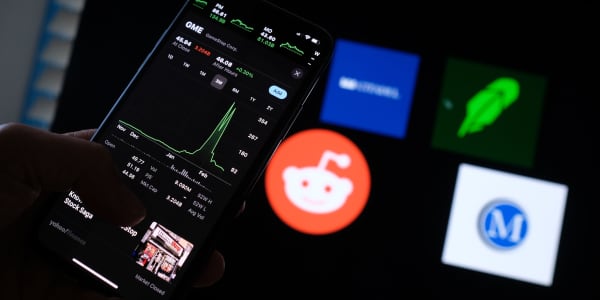Founders: Tomer Weingarten (CEO), Almog Cohen
Launched: 2013
Headquarters: Mountain View, California
Funding: $697 million
Valuation: $3 billion
Key technologies: 5G, artificial intelligence, cloud computing, deep learning, edge computing, Internet of Things, machine learning, software-defined security
Industry: Cybersecurity
Previous appearances on Disruptor 50 List: 1 (No. 31 in 2020)
When the SolarWinds hack, a new form of enterprise cyberattack focused on the supply chain, was found to have infiltrated key U.S. government and corporate systems, one group of companies remained safe: clients of cybersecurity firm SentinelOne.
Its autonomous endpoint security stopped SUNBURST — the malware that tricked systems into uploading it as an update to the SolarWinds' Orion software, which is used by thousands of organizations — at an early stage.
Endpoint security refers to cyber defense across devices — PCs, servers, smartphones, tablets and laptops — connected to an enterprise network. It can help prevent malware and stop malicious activity, whether from trusted (as in the case of SolarWinds) or untrusted applications. Cyber criminals often find their way into a valuable trove of information through this method.
The SentinelOne AI-based solution applies behavioral models and various modes of protection, detection and response across the entire network.
By 2020, two-thirds of organizations said they had data compromised by endpoint attacks, according to research from the Ponemon Institute, and the frequency of attacks was increasing. That threat further increased as more enterprises moved to the cloud and the pandemic shifted even more networks to a wider array of remote capabilities. Gartner noted in a recent cyber risk report that Covid-19 has had a major impact on the dispersion of digital assets beyond traditional enterprise infrastructure.
At the recent RSA Conference 2021, Marco Figueroa, principal threat researcher at SentinelOne, said supply chain attacks like SolarWinds, which he referred to as "the biggest hack ever," are here to stay. The correct posture for the enterprise, he says: "Don't trust anything."
The start-up boasts business from Estee Lauder, JetBlue, and the state of Montana.
SentinelOne competitors have been among the big IPO winners in recent years, such as CrowdStrike — which CEO Tomer Weingarten has referred to as its "main competitor" — now valued at over $46 billion. But more of its competitors are also now talking about the threat posed by SentinelOne. In the past few months, CrowdStrike and Qualys for the first time called out SentinelOne as a competitor in their annual reports. And after the coronavirus pandemic arrived, Palo Alto Networks CEO Nikesh Arora began talking about SentinelOne in conversations with analysts — he referenced the company three times on a recent earnings call.
SentinelOne raised $276 million in a round last November led by Tiger Global, part of a near-$500 million haul from investors in 2020 that tripled its valuation from the beginning of the year to the end, from $1 billion up to $3 billion. The company is rumored to be considering a public offering which could value it at $10 billion. Weingarten told CNBC early last year it had "one or two years" of growth left as a private company. More recently, he told Business Insider in February that SentinelOne was looking at holding an initial public offering in 2021.
He says SentinelOne can beat the competition by providing an approach to endpoint security that offers clients, "For the first time in a long time, a complete view of their network. ... AI deals with data at scale and that's where we feel AI should be leveraged most."
—Contributed by Eric Rosenbaum and Jordan Novet
SIGN UP for our weekly, original newsletter that goes beyond the list, offering a closer look at CNBC Disruptor 50 companies, and the founders who continue to innovate across every sector of the economy.






















































